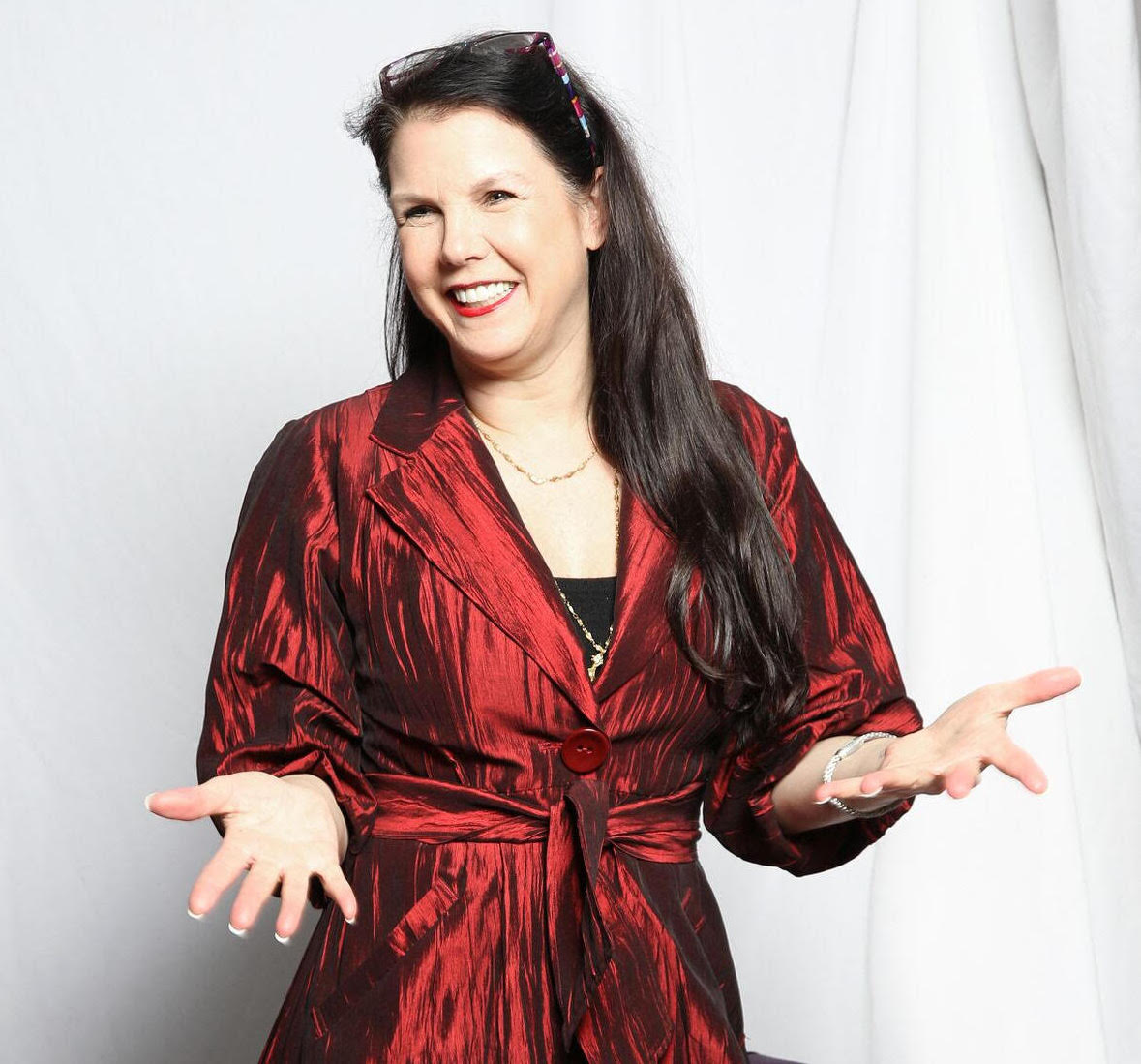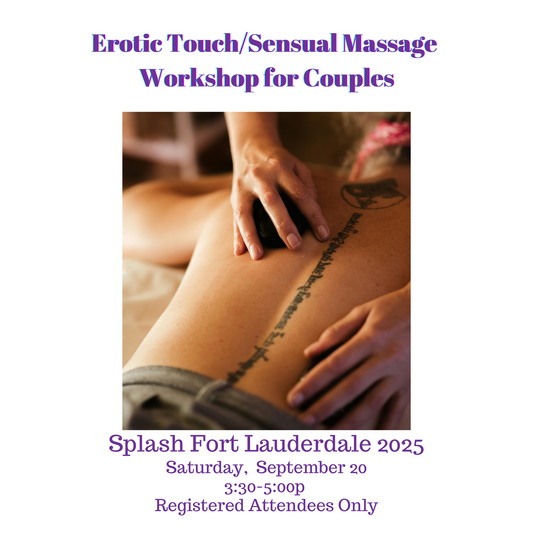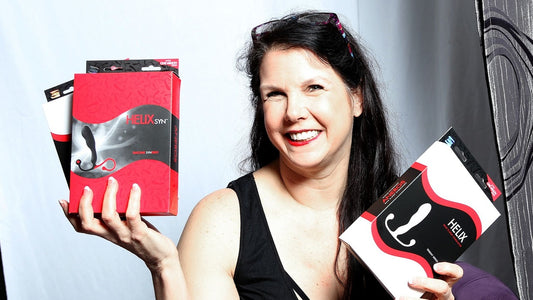As parents, we want to teach our kids how to be happy, smart, strong, and successful. In the formative years, we think we’ve got the basics covered – teach them how to tie their shoes and brush their teeth, teach them proper manners, and eventually send them off to school.
As they grow up, we try to teach them how to make good choices when it comes to picking their romantic partners and going on dates… and then we’ll mutter something about birth control and suggest that they hold off having sex until some “appropriate “ time, whatever that is.
Then we tend to stop teaching.
When it comes to how to actually use our bodies to express love (which is, in my opinion, what “sex” is meant to be for humans, since it clearly isn’t simply for procreation), or appreciating romantic sensual pleasure and orgasm, or even simply loving our own bodies… we fall silent.
I don’t think it’s because we don’t want to teach our children. I think it’s because we have no idea how to teach them or how to talk about these really important topics. Heck, I couldn’t even look at myself in the mirror until I was almost 50 years old; how was I going to broach these issues with my kids?
What makes matters worse is that ignoring the elephant in the room feeds a kind of silence about the fundamentals of love in a relationship and actually makes things worse than even the most awkward of conversations.
Avoidance about something taints it; creates a veil of silence and taboo around it which discourages meaningful exchange of information. We’ve learned the hard way about the price of silence when it comes to HIV, depression, cancer, and addiction, but we’ve also found that when people have more information, it becomes easier to talk and do better together.
Now, we simply have to accept that this is true for raising the next generation. Ironically, children now have easy online access to more information than is actually helpful. Yet they have little practical help sorting through and understanding it in real life.
The unfortunate reality is that abstinence-only education is still prevalent in many school curriculums. When sex is brought up at all, there’s a fearmongering focus on risk and disease. While waiting until marriage might be the right path for some people, we cannot expect it to be a realistic recommendation for every child in today’s world. It is our responsibility as parents to take a more comprehensive approach to sex ed information.
They deserve the entire truth, not a vague abridged version that we toss their way because we feel too awkward to go there.
When we couch sexual discussions in embarrassment and shame, we are teaching our children to feel embarrassed and ashamed of their bodies, whether we realize it or not. When we label something as dangerous and forbidden and proceed to close ourselves off to further discussion of it, we leave our kids stranded in the dark. They will go learn about sex from social media, friends, and even porn videos before ever broaching the subject with us again.
The unfortunate reality is that abstinence-only education is still prevalent in many school curriculums which is contradicted by a society that continuously laughs at the hormone addled male adolescent and shames the female teens yet encourages both to become sexually active and not take it seriously. Kids should find help addressing these contradictions at home, but instead, they often find parents who prefer platitudes rather than forthrightness.
When we couch sexual discussions in embarrassment and shame, or spout criticism like “that skirt is too short!”, we are teaching our children to feel embarrassed and ashamed of their bodies. When we label something as dangerous and forbidden and proceed to close ourselves off to further discussion of it, we leave our kids stranded in the dark. They will go learn about sex from social media, friends, and even porn videos before ever broaching the subject with us again.
When we couch sexual discussions in embarrassment and shame, we are teaching our children to feel embarrassed and ashamed of their bodies, whether we realize it or not. When we label something as dangerous and forbidden and proceed to close ourselves off to further discussion of it, we leave our kids stranded in the dark. They will go learn about sex from social media, friends, and even porn videos before ever broaching the subject with us again.
Studies in the last decade have shown that half of all teens have had sex by the time they graduate high school, and 25% have had an “unwanted” sexual experience. In particular, heterosexual girls often receive messages that sex is inherently violating or painful, and is a sacrifice, compromise, or concession they would make for a boy they really liked. They are seldom taught to prioritize their own satisfaction. These issues can have drastic and pervasive effects on their mental health and their future relationships, especially in a marriage.
Aside from the nitty gritty facts of pregnancy and STD protection, there’s a whole other world you need to discuss in order to keep your child safe and happy as they explore their sexuality. We should be able to help our kids figure out the tricky lines of consent and healthy boundaries. They deserve help learning the importance of empathy, sensitivity, and patience. They should be able to ask questions about what’s okay, what’s not, how to get comfortable with someone, and how to make someone comfortable with them. Shouldn’t kids be taught that sex is about mutual pleasure and closeness – not conquest or status? Don’t you want them to grow up believing they are in charge of their own passions and pleasures?
I’m sure most of you agree with this in theory. And I know that the practice is much harder. I certainly didn’t do as well as I would have like with my own kids. Sadly, now I realize it’s because I hadn’t navigated my own inhibitions, fears, desires, and boundaries.
Therein lies the trouble: We can’t teach our children what we don’t know or recognize in ourselves.
If we received little to no education about our own sexual pleasure, of course we will struggle to determine what information our child needs, and when. We may even feel more sheltered and lost than they do, as we settle into patterns or long term relationships and get left behind by the post-gender, pansexual, contemporary dialogues regarding sex and sexuality. You can’t navigate sea as stormy as this with a broken compass.
This seems so obvious when it comes to subject like physics and chemistry, right? I’m not qualified in any way to teach those things to my kids and I’d never expect them to do well on the AP tests with only me to rely on for guidance. Yet we cross our fingers and hope they’ll do love well without any expert tutelage. But, current divorce rates clearly suggest that we find a better approach.
So I suggest that it’s time for adults to step up. Boldly. We need to speak openly about the elephant in the room, which is that sexy connection, passion, pleasure, and romance are important to healthy, happy relationships. We need to get past our own inhibitions to be able to allow future generations to learn from us. We need to lead by example, not by philosophical ideals.
The pursuit of pleasure is a natural, healthy thing. When we are able to appreciate instances of passionate pleasure, we are able to help our children do so as well. Watch for teachable moments – they’re everywhere. Pointing out how some animals lay eggs and others don’t. Teaching them to ask permission before touching anyone – e.g. asking a classmate if they’re comfortable with receiving a hug goodbye. Teaching them that they always have the right to refuse touch from anyone (yes, even that well-meaning family member pinching their cheeks at Thanksgiving.) Explaining a potentially suggestive scene in a show or movie they might’ve seen. Use simple language for these things. Make your family circle a transparent, judgment-free zone, while still firmly emphasizing safety. As they enter their teens, normalize the pursuit of pleasure as a natural part of the human condition, not as something to feel ashamed of. Keep them safe and appropriate when it comes to the minefield of social media, but know when to respect their privacy and let them know they can always come to you if anything has left them feeling confused or uncomfortable.
We want our children to find relationships that are healthy, fulfilling, and respectful. We want them to be good listeners – to their partners and to their own bodies. We want them to be confident and unabashed.
To do this successfully, you must empower your child to know their body and to honor it, and to make choices that are not only safe, but emotionally intelligent. Be confident that they will be expressing their likes and dislikes in a healthy manner, setting firm boundaries, and feeling autonomous.
The good news is that you’re not alone – we’re all learning together. In the last couple decades, sex has become a more talked-about, valid form of love and expression, rather than something we just “do.” Discussions about our pleasure are extending beyond that flippant “was it good for you?” morning-after question, and I couldn’t be happier about it.
Your personal growth in this area will have a direct and significant impact on your kids at any age. We all get older, but our parents are always one of the sources we look to for guidance, even if it’s subconscious. The better you are at loving yourself and your partner, the better your kids will do.
When you are empowered and confident, when you love and honor your body and make choices that are not only safe, but emotionally intelligent, your children will notice. By improving the way you love and relate, you’ll be helping them do the same.










